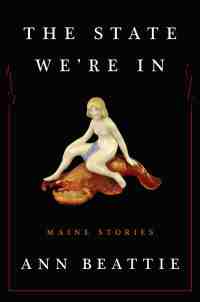Writers of the Future vol. 31, edited by David Farland
 Monday, September 14, 2015 at 8:47AM
Monday, September 14, 2015 at 8:47AM 
Published by Galaxy Press on May 4, 2015
If these are the writers of the future, I'll stick to the writers of the past. The stories are chosen from the "L. Ron Hubbard Writers of the Future" contest. David Farland, who judges the contest, calls them "gleaming and flawless." I'd call most of them "not quite ready to be published."
One of the few highlights in this volume is Auston Habershaw's "A Revolutionary's Guide to Practical Conjuration." It tells an engaging story about the lessons learned by a young man who endeavors to improve a dark world by mastering a book of magic that is also a magical book.
"Switch" by Steve Pantazis is a direct-link-between-mind-and-internet story about a cop who investigates a homicide. The killer took a drug called Switch that slows the perception of time, enhancing the ability to react quickly. The cop uses it too, which is the only interesting thing about the cop. The story is full of clichéd ideas and it drags on too long before leading to a predictable climax.
"The God Whisperer" by Daniel J. Davis is an amusing but half-formed story about a guy who enlists the help of a "god trainer" to help him cope with an egocentric god of war and strife who lives in his back yard. Set in a future Vietnam, Tim Napper's "Twelve Minutes to Viet Quang" would be an excellent first chapter about a heroine who stands up to an oppressive society, but it is insubstantial as a stand-alone story.
Childbirth, childcare, and the blossoming (or not) of womanhood are the focus of "Stars that Make Dark Heaven Light" by Sharon Joss. The theme of socially mandated copulation has been done before, and better, although the female who must copulate has gills, which unevolved humans might regard as a turn-off. Some of the story, about bonding with brainy alien bugs that other colonists view as a threat, is mildly interesting, but too much of the story consists of starry-eyed romantic musings that fans of romance fiction might find more appealing than I did. The ending is just cheesy.
Krystal Claxton's "Planar Ghosts" is a post-apocalyptic story. A character named Pup has a friend named Ghost who is invisible to others but "faintly purple" to Pup. Maybe Ghost isn't really a ghost but the explanation of Ghost's existence is, like the rest of the story, contrived. As an adventure story, it isn't bad, but it could have been better.
"Between Screens" by Zach Chapman has a young nerdy guy skipping around the universe with the hot girl who gives him his first kiss. If you aren't a young nerdy guy who has fantasies about getting laid by a hot girl, you can skip this story without missing anything. "Half Past" by Samantha Murray tells of a girl who must leave her imaginary friends, except they aren't imaginary since they were created by magic during moments of intense emotion. It isn't my kind of story but it does take a surprisingly clever twist. If you like stories like this, it isn't a bad one.
Martin L. Shoemaker's "Unrefined" is an undistinguished "who sabotaged my nuclear reactor?" story, which might have made for a good plot if the story hadn't gone in a completely different and tragically dull direction. "Purposes Made for Alien Minds" by Scott R. Parkin is written in sentences of exactly five words. Gimmick gets old really fast.
"The Graver" by Amy M. Hughes is about people who absorb memories of the dead. That's a concept I've seen before. The story isn't bad until it buries its drama in a lot of silliness about releasing a dead person's soul. Kary English's "Poseidon's Eyes" is a mundane story about spirits that failed to hold my interest.
Mental health counseling for people who do strange things under stress (like turning into smoke, becoming invisible, or increasing in mass and weight) is the subject of Michael T. Banker's "Wisteria Melancholy". Had it been played for laughs, this could have been a great story, but the author took the subject matter more seriously than I did.
L. Ron Hubbard is too dead to be considered a writer of the future but the volume includes a story and an essay about art that he wrote when he was still alive. I guess that's because his name is on the cover. Larry Niven, Orson Scott Card, and Kevin J. Anderson are not dead, but a Card essay and stories by Niven and Anderson (Anderson's is co-written with his wife) are also featured here for reasons I cannot imagine, unless the intent is to give the volume a sense of professionalism by adding writers of the past. Each story has an illustration and there's an article about illustrators of the future and another on "the direction of art" that both seem to serve as page-fillers.
NOT RECOMMENDED



